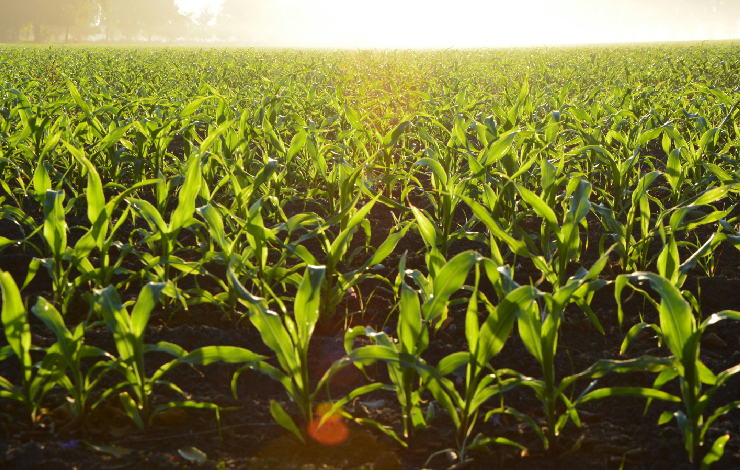16-10-2024

NOVA FCT is part of the consortium of the European project IASIS, recently funded by the European Union - 5 million euros over 4 years - which aims to recover contaminated land with high levels of salinity that contribute to soil degradation and reduced agricultural productivity.
The project has the European coordination of the Centre for Renewable Energy Sources and Saving (CRES), which involves 18 partners from seven European countries, with the main objective of restructuring damaged or unproductive land to increase the European agricultural area, using a process called phytomanagement, which consists of applying plants and microorganisms capable of tolerating and removing contaminants from the soil while regenerating its properties.
The research will focus on land that is contaminated by heavy metals, pesticides or extreme salinity, characteristics that directly affect its ability to sustain agriculture or any other productive use. The project aims to test these solutions in several pilot sites across Europe - Greece, Poland, France, Belgium, Portugal and Italy, where the conditions of degradation are most severe. At these sites, species selected for their ability to resist salinity or certain pollutants will be planted, with the support of microorganisms that increase the plants' ability to absorb nutrients and help stabilise the soil.
The team of NOVA FCT researchers, led by Ana Luísa Fernando, professor in the Department of Chemistry and coordinator of NOVA FCT's METRICS research centre, will work on identifying the best combinations of plants and microorganisms that can be applied to soil recovery, and will monitor the results obtained at the pilot sites, assessing the efficiency of the solutions implemented in terms of improving soil quality, absorption of contaminants and biomass production capacity.
‘IASIS brings with it a series of long-term benefits, especially for agriculture and the Portuguese economy. By rehabilitating land hitherto considered unusable or unproductive, it opens up the possibility of increasing the available cultivation area, which is particularly relevant in a country like Portugal, where soil desertification is increasing due to climate change,’ argues NOVA FCT researcher Ana Luísa Fernando. ‘In addition, the production of biomass in degraded soils and its recovery can feed numerous emerging industries, such as bioenergy and the production of sustainable materials, contributing to the diversification of the national economy and reducing external dependence on conventional and fossil-based raw materials.’
The accumulation of salts in the soil and contamination by chemical substances are often the result of intensive agricultural practices, industrial pollution or natural phenomena such as erosion and desertification. These factors cause extensive damage to local ecosystems, reduce water quality and make the soil unsuitable for agricultural production. For the Portuguese economy and agriculture in particular, this type of degradation has a direct impact on productivity, affecting both food quality and the viability of agricultural areas.
The research carried out under IASIS aims, on the one hand, to regenerate this land so that it can be used again and, on the other, to transform these sites into productive areas for other purposes, such as biomass production. The biomass generated from these inedible (industrial) plants could be used as raw material to create bio-based products, including bioenergy and bioplastics, thus fostering the bioeconomy and the circular economy, where waste and abandoned land become useful resources for industry.
The project is in line with European and national strategies for the transition to a greener and more circular economy, where scientific innovation plays a crucial role. The use of phytomanagement technologies, combined with bioengineering, positions the IASIS project as a benchmark in the field of recovery and sustainable development.
For more information on the IASIS project, visit the CORDIS website.
Press
Projeto europeu vai recuperar terrenos contaminados através de plantas, Notícias ao Minuto
Projeto europeu vai recuperar terrenos contaminados através de plantas, Agroportal
Projeto europeu vai recuperar terrenos contaminados através de plantas, Diário de Leiria
Projeto europeu vai recuperar terrenos contaminados através de plantas, Diário de Viseu
Projeto europeu vai recuperar terrenos contaminados através de plantas, Dnotícias